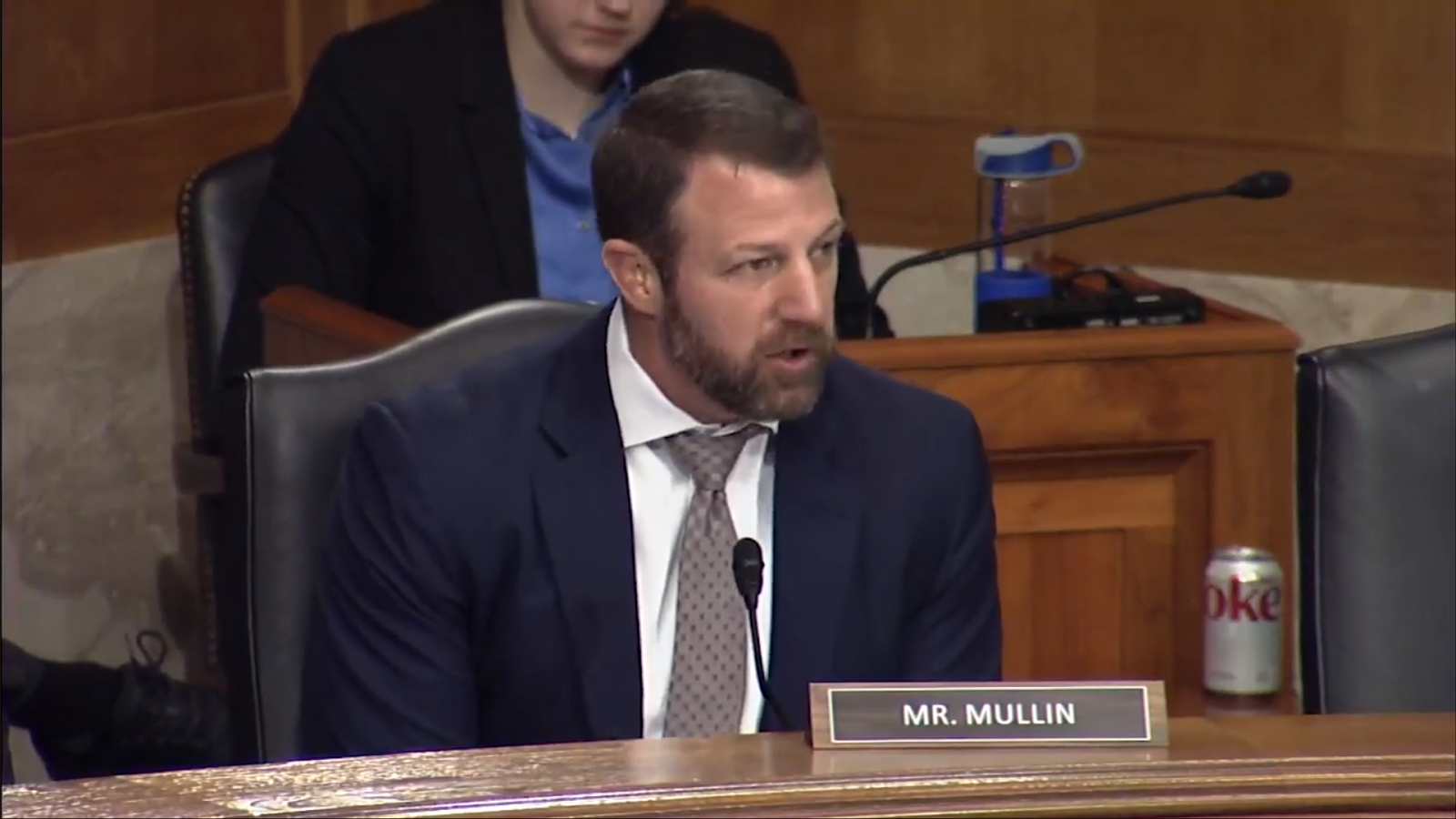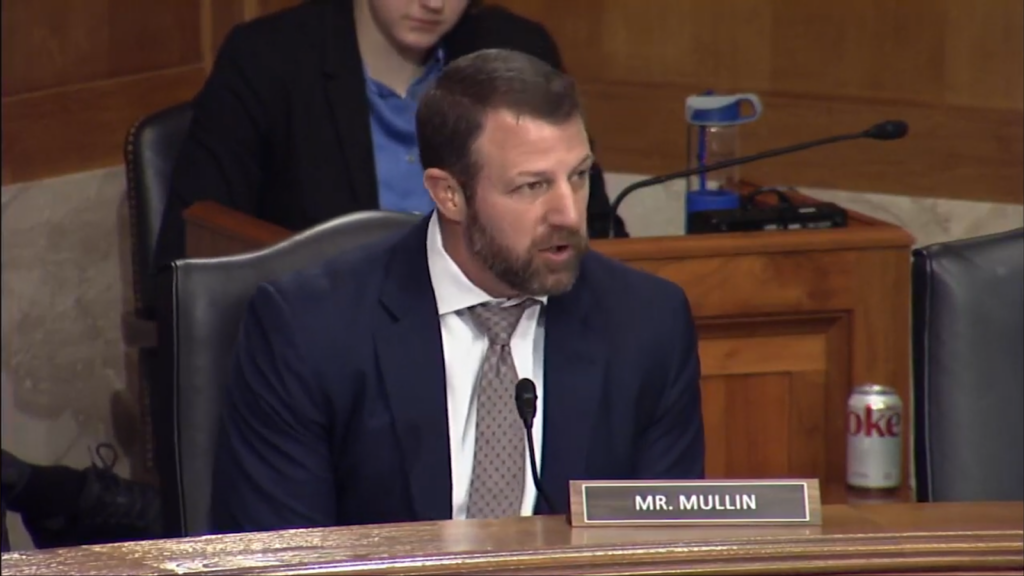Originally Authored at TheFederalist.com

Sen. Markwayne Mullin, R-Okla., complained on Thursday that social media has ruined Congress’s ability to make secretive deals on legislation before it is released to the public.
Mullin made the comments during a panel at a conference hosted by the No Labels party, which purportedly aims to “give power to the middle, in Washington and across America.” The event featured guests from across the political spectrum, including Republican Sens. Thom Tillis of North Carolina and Todd Young of Indiana and Democrat Sen. Tim Kaine of Virginia.
While speaking before a room of attendees with several congressmen, Mullin discussed the complexities of the lawmaking process between the House and Senate and noted, “If you go back and … actually read The Federalist Papers, you’ll understand [the Founders] wanted Congress to be dysfunctional.”
“When people say, ‘Why don’t you all get along?’ It was never designed for us to get along,” Mullin said. “It was designed for it to be a thoughtful process and heavily debated so it couldn’t move as fast it moves sometimes.”
The Oklahoma senator went on to describe the consequences of Congress outsourcing much of its rulemaking to the executive branch and how doing so has the potential to create “destabilization throughout the economy, throughout the country, [and] throughout foreign policy.” He further opined that the federal government needs to “get back to actually allowing Congress to make the legislation” rather than allowing policy to be made predominantly through executive fiat.
Mullin’s remarks took a turn for the worse, however. The Sooner State Republican decried how social media has hampered lawmakers’ ability to negotiate on legislation behind closed doors and claimed it’s important for legislators to meet and discuss such issues “in private.”
“The process can be worked out. It’s new, it’s different because of social media, because everything you do constantly leaks and people make the assumption before they get the facts, which is why it’s important when you’re working in groups like this, that … it stays private,” Mullin said. “Which is one of the reasons why we meet where we meet. We don’t meet on [Capitol] Hill; we meet off the Hill. We have open conversations because we don’t want the media to get there, and [so] we work with people that we can trust.”
Mullin claimed it’s important during negotiations that lawmakers not “allow the process to get out yet on what [they’re] working with because social media and … your left media and your right media both jump to conclusions, and it kills the process before … you can even get started.” He went on to note the executive’s role in the legislative process and the difficulty of placating all parties involved in deliberations.
The comments came days after Mullin defended his colleague Sen. Joni Ernst, R-Iowa, who has come under fire from conservatives for working behind the scenes to sabotage Pete Hegseth, President-elect Donald Trump’s nominee for defense secretary. Multiple sources within Trump world told The Federalist last week that Ernst called Trump to urge him to dump Hegseth and enlisted Sen. Lindsey Graham, R-S.C., to lobby the president-elect to replace Hegseth with Ernst.
When asked this week whether he thinks Ernst should be primaried if she votes against Hegseth’s confirmation, Mullin said, “No,” but expressed optimism that she would ultimately support Hegseth.
“I think Joni is going through the process because it’s very important to her. [When she] makes a decision, she’ll make the right decision, and I’m positive about that,” Mullin said.
Ernst and Graham seemingly changed their tune on Hegseth following conservatives’ pressure campaign. Mullin has pledged support for Hegseth’s confirmation and defended the Army veteran against the anonymous allegations levied against him.
[RELATED: GOP Sen. Todd Young Invites A Primary Challenge By Refusing To Back Hegseth]
Mullin’s defense of Ernst and Congress’s backdoor dealmaking falls in line with his history of supporting bills favored by the D.C. establishment.
Within the past congressional session alone, the Oklahoma Republican has voted for legislation shipping more U.S. taxpayer money to foreign powers like Ukraine, bloated federal spending bills, and a measure to suspend the debt ceiling until 2025. He also opposed an amendment introduced last year by Sen. Josh Hawley, R-Mo., that sought to create a special inspector general to oversee U.S. funds given to Ukraine.
Heritage Action, which grades members of Congress based on how conservative their voting record is, gave Mullin a 2023-2024 session score of 42/100, or 42 percent. Mullin’s Senate seat is up for election in 2026.
Shawn Fleetwood is a staff writer for The Federalist and a graduate of the University of Mary Washington. He previously served as a state content writer for Convention of States Action and his work has been featured in numerous outlets, including RealClearPolitics, RealClearHealth, and Conservative Review. Follow him on Twitter @ShawnFleetwood
